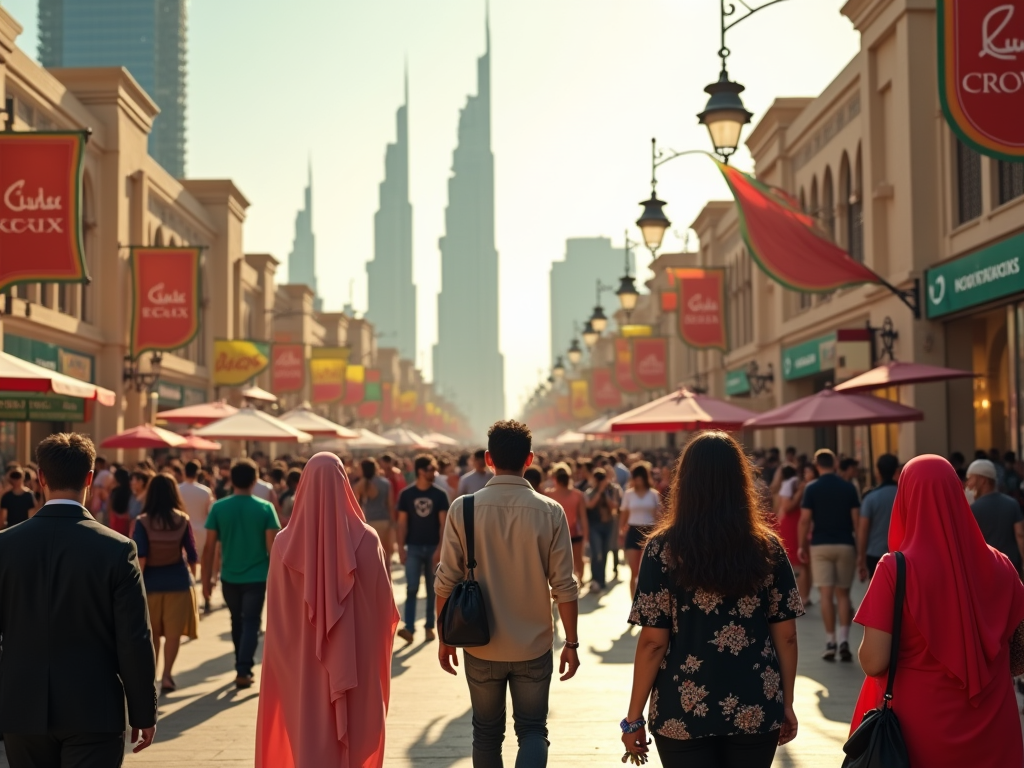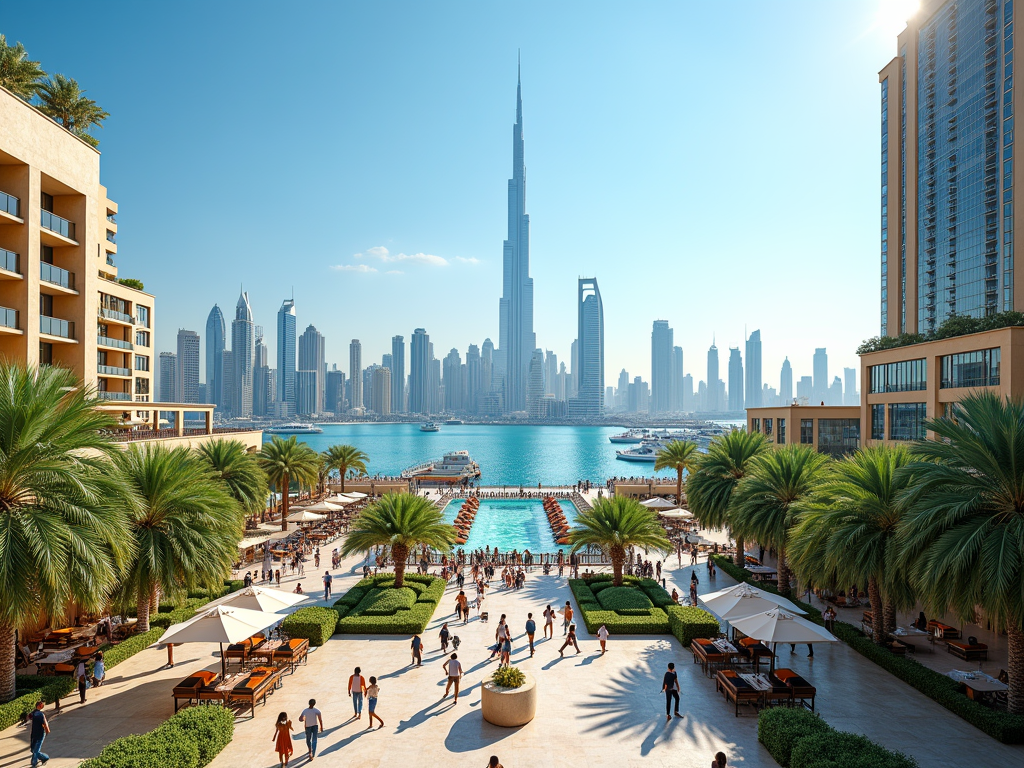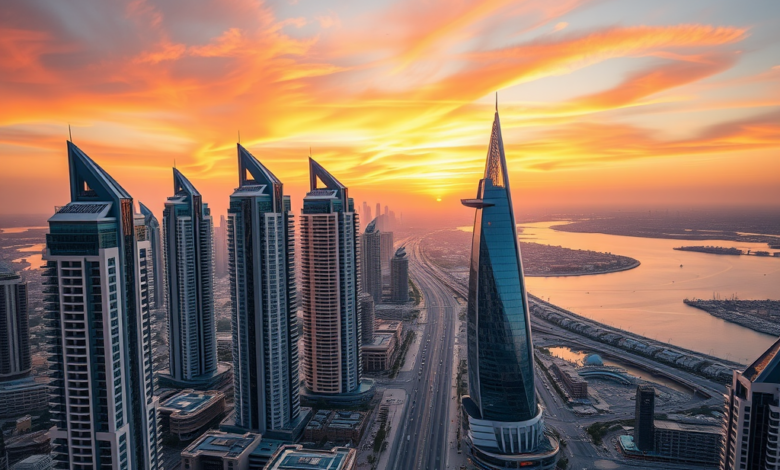Dubai’s burgeoning tourism sector is a key driver of its real estate demand, attracting millions of visitors annually and making it a global hotspot for investment. As the city continuously evolves into a premier tourist destination, the resultant influx of visitors fuels not only the hospitality market but also the property sector. A thriving tourism industry directly correlates with heightened demand for residential, commercial, and vacation properties. This article explores the various aspects of how tourism is boosting property demand in Dubai, from rising visitor numbers to government initiatives aimed at sustaining growth.
The Surge in Tourist Arrivals

One of the fundamental reasons tourism is bolstering property demand in Dubai is the steady increase in tourist arrivals. According to the Dubai Department of Economy and Tourism, the emirate welcomed over 16 million visitors in 2022, a significant rebound post-pandemic. This surge represents a growing interest in both business and leisure travel, which, in turn, stimulates demand for various types of accommodation and real estate investments. Various factors contribute to this visitor influx, including:
- Year-round Events: Dubai hosts numerous festivals and exhibitions throughout the year, attracting international crowds.
- Luxury Experiences: The emirate is known for its luxury shopping, dining, and entertainment options, which lure affluent tourists.
- Strategic Location: Dubai serves as a central hub between the East and West, making it easily accessible for travelers worldwide.
- Safe Environment: Dubai’s reputation for safety and hospitality provides peace of mind to travelers.
- Visa Reforms: Streamlined visa processes for visitors have continuously encouraged more tourists to explore the region.
Investment Opportunities in Real Estate

As tourism in Dubai escalates, so does the potential for lucrative real estate investment. Overseas investors view Dubai as an ideal location to purchase property, drawn by the promise of high rental yields and a strong capital growth outlook. The government has introduced various initiatives to encourage international investments, including long-term visas for property owners and an attractive taxation environment free from capital gains tax. This proactive approach coupled with the growing tourism industry leads to an upsurge in both residential and commercial property demand, evidenced by:
- Increased Residential Sales: Properties in popular tourist areas are witnessing rapid sales as buyers look to capitalize on rental opportunities.
- Commercial Growth: Business ventures, including hotels and retail spaces, flourish due to high foot traffic from tourist attractions.
- Vacation Rentals: Platforms like Airbnb have gained traction, making it easier for homeowners to rent out their properties short-term.
The role of government initiatives cannot be overlooked when discussing how tourism impacts property demand in Dubai. The government has invested heavily in infrastructure, tourism experiences, and comprehensive policies that support both sectors. Key regulatory measures and initiatives include:
- Expo 2020: Initially delayed due to the pandemic, this event amplified exposure to Dubai, showcasing its offerings and stimulating global interest in the property market.
- Tourism Strategy 2025: Aimed at attracting 25 million visitors annually, this vision emphasizes enhancing Dubai’s touristic appeal, thereby indirectly spurring demand for property.
- Real Estate Projects: High-profile projects, including the Dubai Marina and Palm Jumeirah, continue to attract expatriate homeowners and investors alike.
The Impact of High Rental Yields
Investors are keenly interested in Dubai’s residential market due to its high rental yields. Average rental returns in the city often exceed 7%, making it a lucrative market compared to other global cities. This results in an increasing number of investors, both local and international, aiming to enter the property market, which in turn drives up demand. The correlation between a robust tourism sector and high rental returns creates a win-win situation for property owners and investors. Key aspects influencing these rental yields include:
- Peak Travel Seasons: The influx of tourists during peak seasons results in increased occupancy rates for rental properties.
- Desirability of Location: Proximity to tourist attractions significantly boosts rental value.
- Luxury Amenities: Demand for properties offering premium amenities often correlates with higher rental prices.
Conclusion
In summary, Dubai’s tourism industry plays an instrumental role in enhancing property demand. With a steady rise in tourist arrivals, favorable government policies, and high rental yields, the real estate sector is thriving. These factors have created a dynamic environment ripe for investment and growth, solidifying Dubai’s status as one of the world’s most attractive real estate markets. As the emirate continues to innovate and evolve as a tourist destination, the synergy between tourism and property market demand is likely to sustain its momentum for years to come.
Frequently Asked Questions
1. How does tourism influence property prices in Dubai?
Tourism increases demand for accommodation, driving up property prices in areas popular with tourists, especially in high-traffic neighborhoods.
2. What types of properties are in demand due to tourism?
Short-term vacation rentals, luxury apartments, and commercial properties such as hotels and retail spaces are in high demand.
3. Are there government schemes for foreign investors in Dubai’s property market?
Yes, various initiatives like long-term visas for property owners and favorable regulatory conditions attract foreign investors to Dubai.
4. How does Dubai’s rental market benefit investors?
Investors enjoy high rental yields, often exceeding 7%, due to the steady demand from the tourism sector and expatriate communities.
5. What role did Expo 2020 play in boosting Dubai’s real estate market?
Expo 2020 significantly enhanced Dubai’s global visibility, attracting millions of visitors and increasing interest in real estate investments during and after the event.





